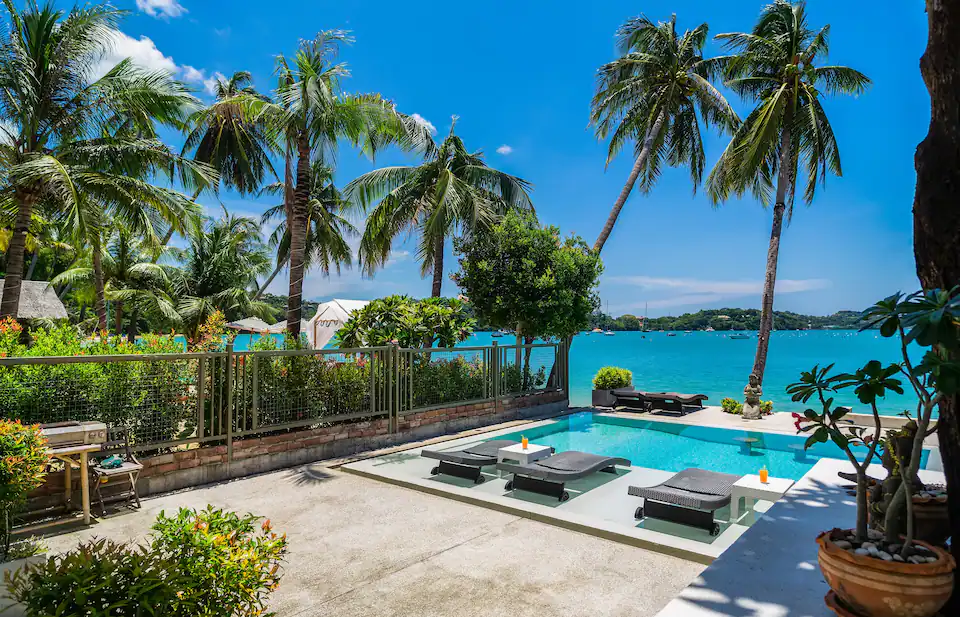In recent years, it has become very common for foreigners to purchase condos in Thailand and rent them out using Airbnb.
The reasons are two-fold. First, Thailand makes it extremely easy for foreigners to buy condos in the country. And, second, it’s a way to generate consistent rental income seeing as Thailand is one of the most popular tourist destinations in the world.
The prices of condos in Thailand also happen to be among the cheapest in the world. So it’s a win-win-win.
But before you rush into buying a condo in Thailand and using it as a rental property on Airbnb, it’s important to understand the legality of Airbnb in Thailand.
Is Airbnb legal in Thailand?
Well, it’s complicated, to say the least. Currently, Airbnb operates within a legal gray area in Thailand.
Let’s break it down: technically, renting out residential units for less than 30 days without a hotel license is prohibited under Thai law. This requirement poses a hurdle for condo owners looking to use Airbnb to attract short-term renters.
However, here’s where things get interesting.
Despite the legal restrictions, short-term rentals on Airbnb remain prevalent across Thailand. How is this possible? Well, it’s largely due to a loophole in the law that permits short-term property rentals without a hotel license, provided certain conditions are met. More on that below.
How to host an Airbnb legally in Thailand?
There are two ways to legally host on Airbnb in Thailand:
Apply for a Hotel License
The first is by obtaining a Hotel License. However, since this comes with a lot of regulations and hassle, it is rarely recommended. So we will move on to the more realistic option.
Apply for an exemption to the Hotel License
This is the primary way Airbnb hosts can skirt by the ban on short-term rentals in Thailand (legally, of course).
The requirements for getting a Hotel License Exemption state that a property must have eight or fewer rooms, accommodate less than 30 guests, and that the rental is used as an additional source of income for the owner, rather than his or her primary source of income.
Finally, those operating short-term rentals on Airbnb in Thailand are required to report their Airbnb and hosting to local authorities.
What are the penalties for hosting on Airbnb illegally in Thailand?
If you fail to get a Hotel License or Exemption then you can face hefty fines and even the threat of imprisonment. So it’s best to just jump through all the legal hurdles before renting out a condo on Airbnb in Thailand–even if it is annoying and time-consuming.
What to know before hosting an Airbnb in Thailand?
So, if you’re considering buying and renting out a condo on Airbnb in Thailand, you need to be wary of a couple of things.
First, it’s important to find condominiums that allow Airbnb rentals. Some condo properties have a strict no short-term rental policy. While others have no problem with it. So it’s best to speak with the management of the building to know if it’s possible or not.
Moreover, condo owners looking to use their property on Airbnb in Thailand should be mindful of the potential implications of operating an Airbnb rental without the necessary approvals. While enforcement may vary depending on location and circumstances, there’s always a risk of facing penalties or legal repercussions for flouting regulations.
Legal requirements for purchasing a condo in Thailand
Beyond the legality of Airbnb, it’s also good to be aware of Thailand’s condo laws and how to buy a condo as a foreigner in Thailand. Even though buying a condo in Thailand is easier than other countries, there are some requirements to follow:
- Foreign ownership of units in a condominium cannot exceed 49%.
- The funds used to buy the condo must come from abroad.
- Obtain a Foreign Exchange Transaction Form as proof of funds.
- Comply with the Condo Ownership Act of Thailand.
All in all, these regulations aren’t very difficult to stay on the right side of if you do your research and find an appropriate property for your next Airbnb rental.
Hosting an Airbnb in Thailand: Practical considerations
There are also practical aspects that condo owners should take into account when venturing into the world of Airbnb rentals.
Maintaining a high standard of cleanliness, providing amenities and personalized touches, and offering guest experiences can greatly improve your property’s appeal and garner positive reviews, which is everything in the world of short-term rentals.
Also, get professional photos taken of the property to make a good first impression on prospective renters.
Additionally, pricing your rental competitively and staying informed about market trends can help optimize your occupancy rates and maximize rental income. For example, a condo in a neighborhood in Bangkok such as Thonglor can fetch much higher daily rental prices than say a condo in Onnut.
Be smart and choose the legal route
At the end of the day, Airbnb can be a lucrative endeavor for foreigners looking to make some extra money in Thailand.
But that can all come crashing down quickly if it’s not done the right way. Airbnb can be perfectly legal in Thailand if you just take the time and follow some very clear-cut rules.
So just follow the regulations, obtain a Hotel License exemption, communicate with condo management, and adopt the best practices for hosting and nothing is stopping you from making some nice rental income.
Things to do ↗
Find the best activities, restaurants, and nightlife in Thailand.
Destinations ↗
Explore the endless destinations Thailand has to offer.
Stay in Thailand ↗
Learn how to extend your stay in the Land of Smiles.

